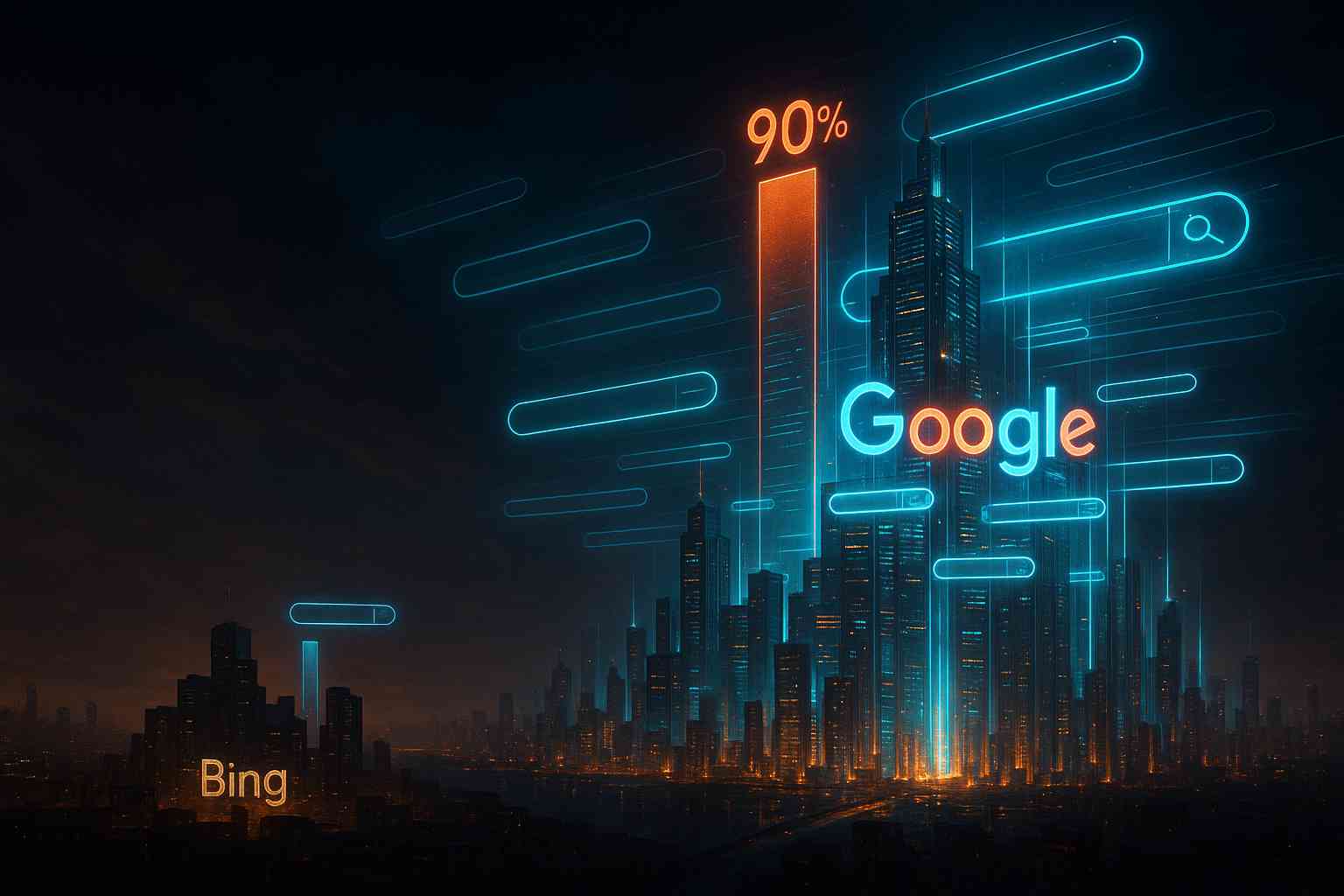Why Microsoft Bing Still Can’t Beat Google
Why can’t Microsoft Bing beat Google? Explore the latest data, facts, and the challenges keeping Google dominant in the global search market.

Google remains unchallenged as the world’s leading search engine, leaving Microsoft Bing struggling to close the gap. Recent data shows Bing is stuck at under 8% global market share, while Google commands nearly 90% of all users worldwide. What are the deep-rooted reasons behind Bing’s failure to overtake Google in the increasingly competitive digital search landscape?
Google leads the search market thanks to its default status across devices and a tightly integrated ecosystem. Google is the default search engine for Chrome, Android, and even Apple’s Safari via billion-dollar deals. According to StatCounter, almost all major devices use Google as the primary search gateway. While Microsoft Bing dominates the Windows ecosystem, it still can’t break user habits formed over two decades. This behavioral pattern is reinforced by a Wharton UPenn study showing most users stick with Google, even when offered incentives to try Bing.
Perceived Quality and User Experience
One of the key factors behind Bing’s failure to surpass Google lies in public perception of search quality. Users widely believe Google delivers more relevant and accurate results. International studies reveal only about 1.1% of users are willing to switch to Bing when given a real choice. Google also leads in offering features like snippets, Knowledge Graph, and concise search results that instantly answer user needs. Research on arXiv.org shows Google outperforms Bing in navigational queries, with a 95% accuracy rate versus Bing’s 76%.
Bing’s AI Limitations
Despite Microsoft integrating generative AI such as Copilot (powered by GPT-4) into Bing, this has yet to translate into significant user growth. Recent data from Wikipedia shows any spike in Bing’s users after AI feature launches is short-lived and soon plateaus. Bing Chat is also often criticized for producing hallucinations (incorrect answers) and being easily manipulated by prompts, which undermines user trust.
The Strength of Google’s Ecosystem
Google’s ecosystem further strengthens its position. Services like YouTube, Gmail, Google Maps, and Android feed into a vast data network, constantly refining its search algorithms. Google uses cross-app user behavior data to perfect search results. Bing lacks an ecosystem of similar scope. Google Ads, too, is far more massive and effective than Bing Ads, both in terms of market reach and the quality of data collected.
Structural Barriers and Regulation
Bing’s efforts to compete with Google are also blocked by monopolistic practices and Google’s exclusive deals with device makers. The US antitrust case against Google highlights how default search engine contracts keep rivals like Bing at bay. Despite government efforts to encourage healthy competition and provide alternatives like Bing with a fair shot, entrenched user habits and Google’s established status remain unshaken. For more on these regulatory efforts, see The Verge.
User Bias and Loyalty
User loyalty and bias pose major challenges for Bing. Most people trust Google to always provide the fastest and most relevant results, even when Bing’s quality is comparable. This perception only grows over time, making it harder for Bing to convince users to try or stick with its service. In several trials, users switched back to Google even when offered financial incentives to use Bing.
Innovation and Investment Factors
Although Microsoft has invested heavily in Bing and AI technology, Google still outpaces it in funding research and development. Google’s enormous advertising revenues provide the capital needed to maintain its technological lead and accelerate product innovation. Bing simply can’t match the scale of Google’s investment or the speed of its product integration, especially as Google continuously folds AI and machine learning into its offerings.
Market Perspective and the Future
Today’s reality is that Bing remains unable to shake Google’s position as the world’s number one search engine. All of Microsoft’s innovations, AI integrations, and marketing strategies are still thwarted by longstanding user habits, public trust, and Google’s overwhelming ecosystem. This battle is about more than just better technology—it’s about habit, psychology, business infrastructure, and complex legal structures.
The future of search engine competition may well be shaped by government regulations, changes in digital consumption patterns, and advances in AI technology. For now, though, Google’s reign is all but unbreakable—a powerful lesson in how ecosystems, user habit, and the strength of data can create near-absolute digital dominance.





Comments ()